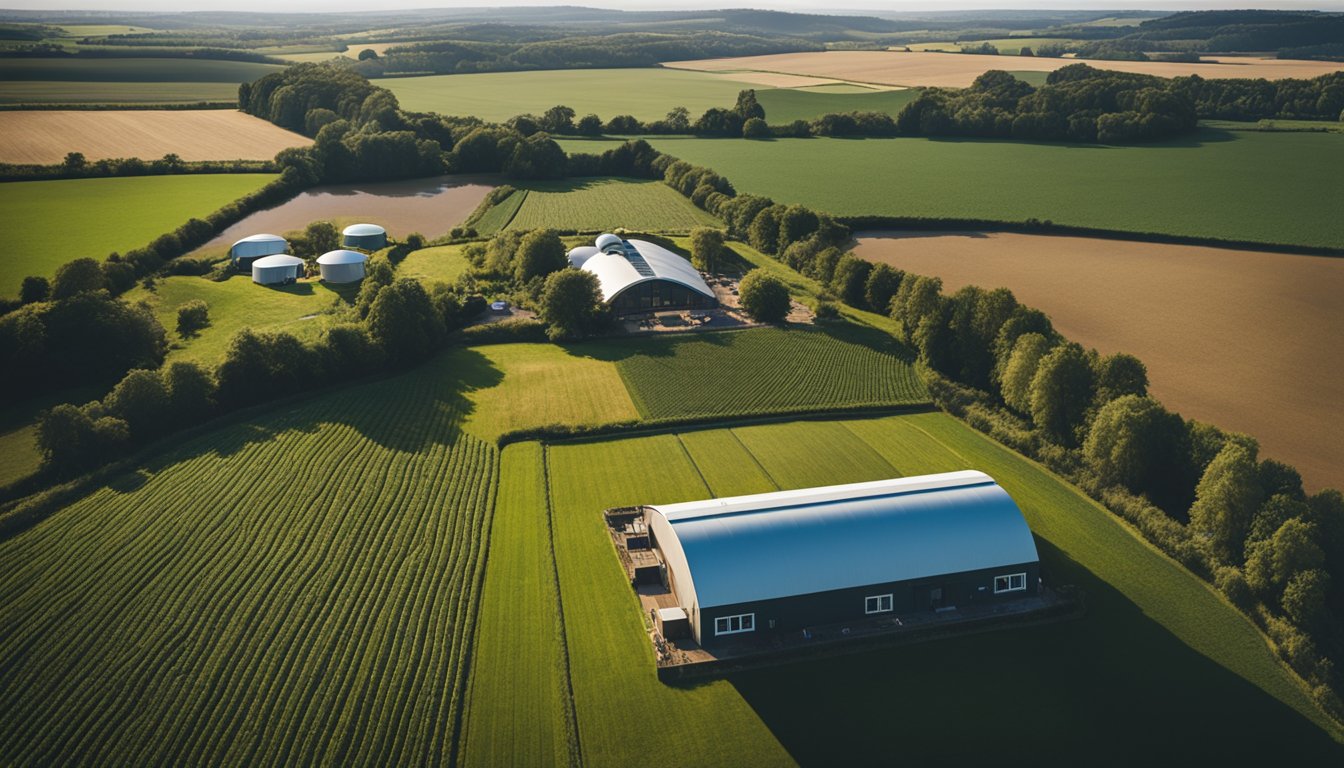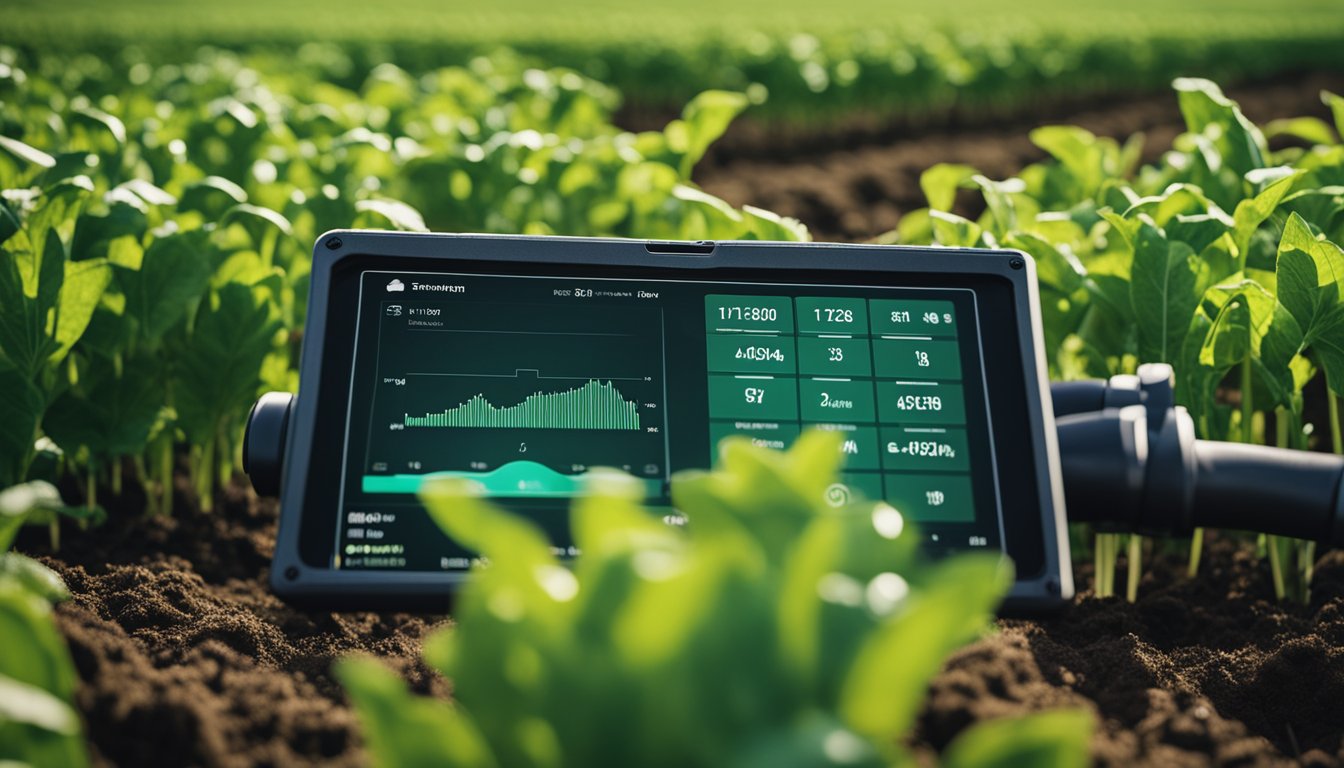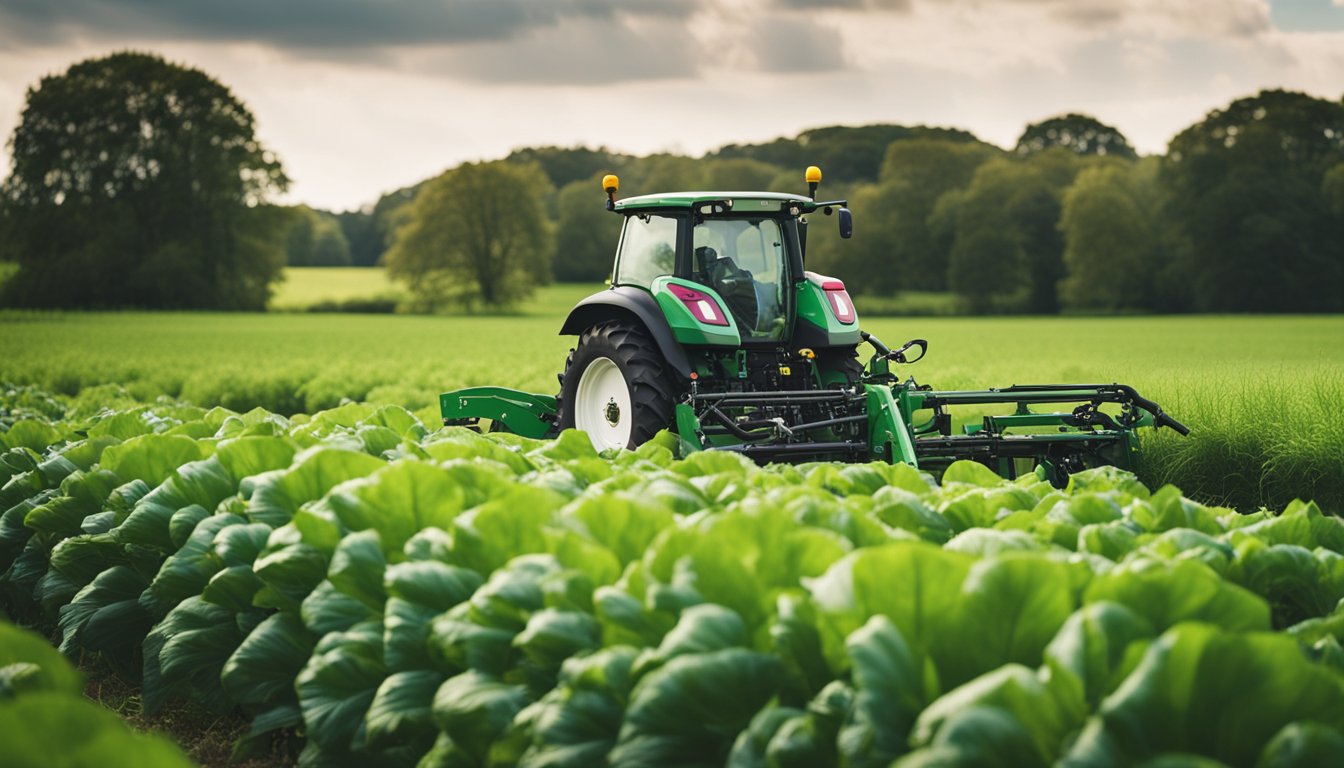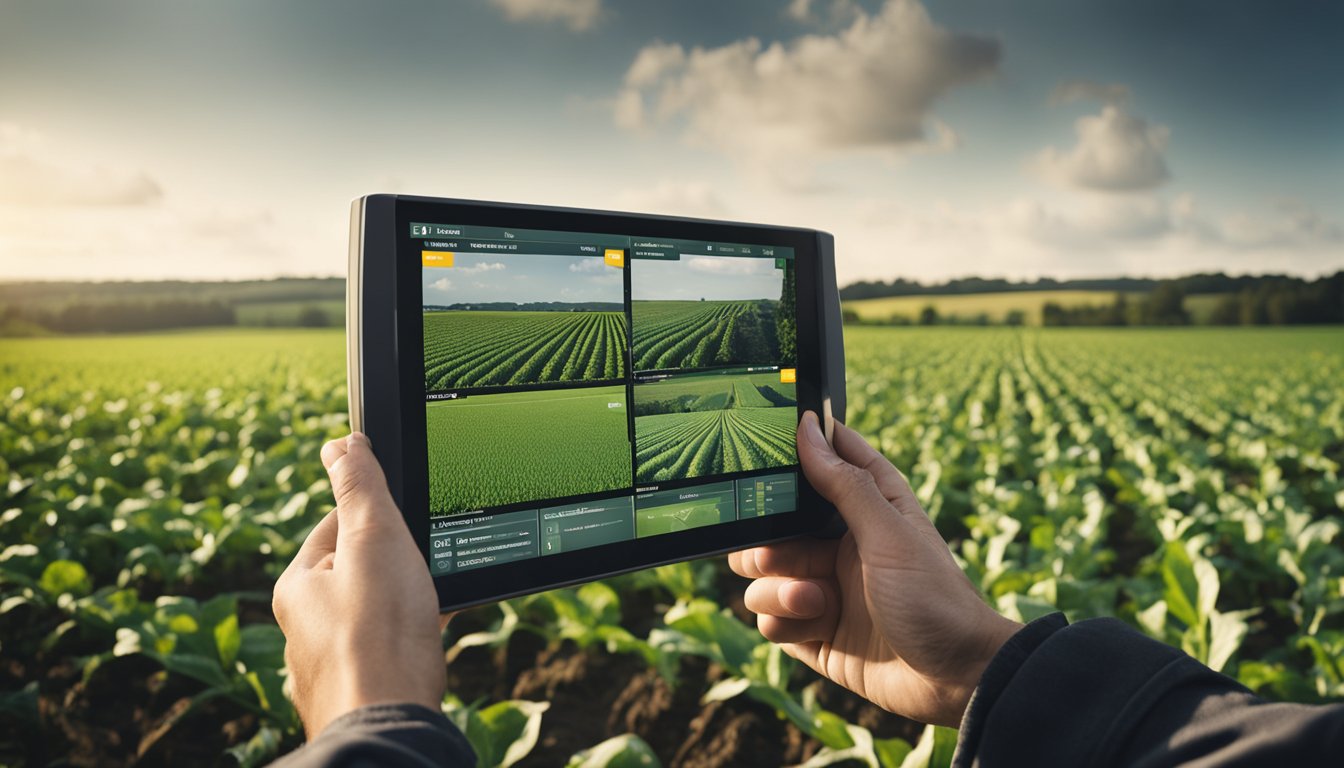Late updated: 21 Jan 2025 09:01
Written by: Oliver Bennett
Innovative Digital Farming Tools in the UK: Transforming Agriculture Practices
In recent years, the UK has embraced a remarkable transformation in agricultural practices, largely driven by the advent of digital farming tools. These technologies are not mere upgrades but are reshaping how we approach agriculture across the country. At the core of this evolution is the integration of artificial intelligence and precision technology to enhance productivity, sustainability, and resource management.

We witness the dawn of a new era where digital twins and predictive algorithms allow farmers to simulate and optimise crop growth under changing environmental conditions. Precision farming has rapidly progressed, not just revolutionising our methods but offering tangible solutions to longstanding agricultural challenges. These smart tools promise not only efficiency but also environmental consciousness, building a more sustainable future for UK agriculture.
From AI-driven equipment to sophisticated farm management software, the digital farming revolution is indeed setting new standards in the industry. By harnessing these innovative technologies, we can sustainably increase our yields, all while maintaining the delicate balance with our environment. As we continue to transition into this digital era, the UK stands at the forefront, ready to pave the way for other nations in embracing smart farming.
Key Takeaways
- Digital tools are transforming agriculture in the UK.
- Precision technology enhances both productivity and sustainability.
- AI and smart tools are central to modern farming innovations.
Emerging Technologies in UK Digital Farming

UK digital farming combines several emerging technologies to enhance productivity, sustainability, and farm efficiency. These methods are reshaping how farms manage resources, improve yields, and optimise operations through precision and smart tools. Here's how these innovations are changing agriculture in the UK.
Precision Agriculture Technologies
Precision agriculture technologies enable farms to maximise output while minimising input wastage. Variable rate technology, precision planting, and yield mapping are pivotal tools. They allow us to apply the right amount of resources like seeds and fertilisers at the optimal time and location.
By employing real-time monitoring and predictive analytics, we can anticipate crop needs and adjust our strategies to optimise growth conditions. Enhanced use of IoT sensors provides invaluable data for resource management, ensuring sustainable practices and increased productivity.
Smart Farming Tools and Their Impact
Smart farming tools revolutionise daily farm operations. Through smart farming solutions, we can monitor field conditions and manage livestock effectively. These tools include advanced systems like farm management software and automated machinery that streamline processes and reduce labour demands.
The integration of real-time data analytics ensures that we make informed decisions promptly. This not only enhances farm efficiency but also supports sustainable farming by significantly reducing waste and improving the overall health of agricultural ecosystems.
Data-Driven Farming and Analysis Methods
Data-driven farming harnesses the power of agricultural data analytics to make precise and informed decisions. By analysing vast amounts of data from IoT sensors and farm management systems, we gain insights into crop performance and soil conditions.
This approach includes predictive analytics which aids in forecasting events such as pest infestations or weather changes, allowing us to respond effectively. Such detailed analysis enhances resource optimisation, ensuring that every aspect of the farm operates at peak efficiency, supporting sustainable and productive agricultural practices.
Sustainability and Resource Management

Innovative digital farming tools in the UK are not only improving productivity but also playing a crucial role in sustainable farming. These advancements enhance our ability to manage resources efficiently and ensure the environmental sustainability of agricultural practices.
Advancements in Sustainable Farming Practices
Recently, UK farmers have adopted precision farming technologies to enhance environmental sustainability and efficiency. Automated irrigation systems allow for precise water usage, minimising waste and boosting crop yield. Similarly, soil health monitoring technologies, such as sensor-based systems, not only provide critical data to maintain nutrient levels but also reduce the need for chemical fertilisers. These tools help us reach our net zero goals by promoting practices that reduce carbon emissions and fossil fuel dependency. Emphasising resource efficiency, our agricultural sector increasingly incorporates these technologies to meet food security challenges.
Innovations in Crop and Livestock Management
Digital tools have transformed crop and livestock management, improving resource allocation and production methods. Advanced weather forecasts assist farmers in planning agricultural activities, reducing the risk of crop failure. Meanwhile, AI-powered analytics enable precise livestock management by monitoring animal health and adjusting feed as needed. These systems support farm resilience by optimising every aspect of production, ensuring resources like feed and water are used efficiently. By applying data-driven decisions, we are better equipped to balance productivity with environmental stewardship.
Policy and Land Management Strategies
Effective agricultural policy and land management strategies are essential for advancing sustainability goals. Policies promoting the adoption of smart farming tools encourage farmers to invest in technologies that optimise land use and improve resource management. Government initiatives focus on supporting practices that protect soil health and water resources, directly influencing our sustainability outcomes. Collaborative efforts between policy makers and agricultural stakeholders ensure the implementation of best practices and innovative solutions in land management. These strategies contribute to food security and long-term farm viability, aligning with broader environmental and economic objectives.
Frequently Asked Questions

In this section, we address some of the most pertinent queries regarding digital farming tools in the UK. Topics include advancements in technology, AI applications in agriculture, and recent innovations that have transformed UK farming practices.
What latest advancements in farming technology are currently available for UK farmers?
UK farmers now have access to precision farming tools, AI-driven analytics, and high-resolution satellite imagery. These technologies enhance decision-making, optimise resource usage, and increase crop yields. The emphasis is on improving sustainability and efficiency through innovation.
Which artificial intelligence applications are being used in UK agriculture?
AI applications in UK agriculture include predictive analytics for weather and crop health, automated machinery for planting and harvesting, and machine learning algorithms for optimising input usage. These tools help in managing risks and maximising productivity.
What are two prevalent methods of agriculture practised in the United Kingdom?
Two common methods are arable farming and pastoral farming. Arable farming focuses on crop production, while pastoral farming is dedicated to livestock. Both methods are increasingly integrating digital tools to boost productivity and sustainability.
Can you list four recent technological innovations that have impacted farming?
Recent innovations include blockchain for supply chain transparency, drone technology for crop monitoring, IoT devices for real-time data collection, and vertical farming systems for urban agriculture. These advancements have enhanced both efficiency and traceability.
How have digital tools in agriculture transformed farming practices in the UK?
Digital tools have revolutionised farming by enabling precise resource management, reducing environmental impact, and enhancing yield predictability. With AI and big data analytics, farmers can make informed decisions, improving both efficiency and sustainability in operations.
What role does CropLife UK play in the development of innovative farming tools?
CropLife UK fosters collaboration between technology developers and the agricultural sector. Their role includes advocating for sustainable farming practices and supporting research into new digital tools. By facilitating partnerships, they help drive the adoption of innovative solutions in UK farming.
